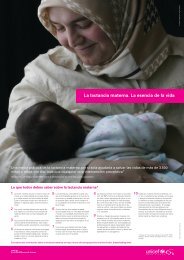SEXUAL ABUSE AND EXPLOITATION OF BOYS IN SOUTH ASIA A ...
SEXUAL ABUSE AND EXPLOITATION OF BOYS IN SOUTH ASIA A ...
SEXUAL ABUSE AND EXPLOITATION OF BOYS IN SOUTH ASIA A ...
You also want an ePaper? Increase the reach of your titles
YUMPU automatically turns print PDFs into web optimized ePapers that Google loves.
Amendment) Act 2006; and the Pakistan Penal Code 1860. With the exception of some<br />
amendments, Pakistan shares the nineteenth century British Penal Code with Bangladesh and<br />
India.<br />
Boys are inadequately protected from both sexual abuse and sexual exploitation in Pakistan<br />
law. There is an absence of legislation clearly prohibiting child sexual abuse, and the legal<br />
definitions of sexual abuse, sexual consent and trafficking are inadequate. The sexual abuse<br />
of boys is not only generally ignored in legislation, but some laws severely penalize boys for<br />
sexual activities with other males, whether or not they are coerced into the activities.<br />
Trafficking laws are focused on external trafficking and primarily apply to girls. Key passages<br />
in legislation that could address trafficking of boys, such as laws against abduction, apply<br />
only to boys below the age of 15.<br />
7.2.1 Definition of a child<br />
The legal age of children in Pakistani law varies from 14 to 18. The Prevention and Control<br />
of Human Trafficking Ordinance 2002 (Trafficking Ordinance) defines a child as a person<br />
who is under 18 years. While there is no specified age for sexual consent, the legal age for<br />
marriage is 16 for girls and 18 for boys. However, the Offence of Zina (Enforcement of<br />
Hudood) Ordinance 1979 prescribes the age of adulthood for boys as 18 and for girls as either<br />
16 or the onset of puberty, whichever comes earlier.<br />
As dictated by the Hudood Ordinance, Pakistan law holds all persons, male and female,<br />
regardless of age, criminally responsible for a number of crimes including rape and<br />
adultery. 350 Children are given consideration only in the level of their punishment. For crimes<br />
not addressed in the Hudood Ordinance, laws such as the Penal Code prescribe the age of<br />
criminal responsibility as 7 years. Under a proposed child protection bill, submitted to<br />
Parliament in 2007 and awaiting approval, the minimum age for criminal responsibility<br />
would be raised from 7 to 12 years, in compliance with international standards. 351<br />
The Employment of Children Act 1991 forbids the use of children under 14 in hazardous<br />
labour, but permits them in ‘non-hazardous’ work. The act does not forbid children under 14<br />
from working in hotels or restaurants –situations known to be conducive to the sexual abuse<br />
of boys in Pakistan.<br />
7.2.2 Sexual abuse<br />
Pakistan has no specific legislation addressing sexual intercourse with a child, which is in all<br />
cases considered rape. Among the diverse forms of child sexual abuse, Pakistan legislation<br />
only criminalizes rape. It does not address sexual harassment, oral sex, indecent touching,<br />
molestation, using indecent sexually explicit language with a child as well as indecent<br />
exposure and showing children pornographic material.<br />
350 UNICEF Regional Office for South Asia, 2005, ‘South Asia and the minimum age of criminal responsibility’.<br />
351 National Commission for Child Welfare and Development, 2007, ‘Pakistan’s consolidated third and fourth<br />
periodic report to the UN Committee on the Rights of the Child’.<br />
113










